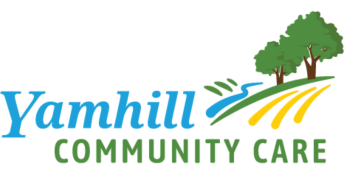
Together we can support a healthy community
YCCO collaborates with a network of medical, dental and behavioral health specialists as well as social support partners.
We all work together for the good of our patients and the health of our community.
Clinical Guidelines
Community Health Guidelines
Vaccinations
Together we can increase vaccination rates in the Yamhill County Community.
Oregon Health Authority Vaccines and Immunizations
Oregon Health Authority Alert Immunization Information System
Patient-Centered Primary Care Home Program (PCPCH)
Any health care practice that provides comprehensive primary care and meets the key standards can become a recognized Patient-Centered Primary Care Home, including:
- Physical health providers
- Behavioral, addictions and mental health care providers with integrated primary care services
- Solo practitioners
- Group practices
- Community mental health centers with integrated primary care services
- Rural health clinics
- Federally qualified health centers
- School-based health centers
Please visit OHA PCPCH website page to learn more about designation.
Value-Based Payment
Value-based payment (VBP) is one of the Oregon Health Authority’s (OHA’s) primary strategies for achieving the triple aim of better health, better care and lower costs for all Oregonians.
YCCO Quality Pool Distribution 2022
To learn more about VBP, please visit OHA Value Base Care website.
Metrics & Performance
Since July 2020, PhTech’s AYIN Insights platform has been used to offer providers real-term updates on incentive metrics performance. Fully integrated within CIM, its key features include graphical visualizations of performance metrics and the ability to review and export gap lists for members who apply to each metric. Access to this platform is available at no cost to YCCO providers by emailing the following information to providerrelations@yamhillcco.org.
- Full Name
- Email Address and Phone Number
- Clinic Name and address
- Clinic NPI and TIN
- Job Title
Provider tutorial for basic Insights functions.
Current Insight users may email questions or feedback to providerrelations@yamhillcco.org.
Report Fraud, Waste & Abuse
Medicaid fraud is illegal and must be reported. Fraud includes providers billing for services not rendered or individuals using someone else’s ID to receive OHP benefits. Medicaid fraud, waste, or abuse can be reported electronically, by phone, or via email.
Report provider fraud:
Medicaid Fraud Control Unit (MFCU)
Oregon Department of Justice
100 SW Market Street
Portland, OR 97201
Phone: 971-673-1880
Fax: 971-673-1890
OHA Program Integrity Audit Unit (PIAU)
3406 Cherry Avenue NE
Salem, OR 97303-4924
Phone: 888-372-8301
Fax: 503-373-1525 ATTN: HOTLINE
Report member fraud:
DHS/OHA Fraud Investigation
P.O. Box 14150
Salem, OR 97309
Phone: 1-888-FRAUD01 (1-888-372-8301)
Fax: 503-373-1525 ATTN: HOTLINE
YCCO Compliance & Ethics Hotline:
Providers can also report potential fraud, waste, and abuse directly to YCCO. The toll free Compliance & Ethics Hotline (844) 989-2845 is an anonymous voicemail box open to anyone, available 24/7, and is monitored daily.
Violations are states in the Yamhill Community Care Code of Conduct policy. Anonymous violation reports can be filed through Ethics Point.
Contracting With YCCO
To become an in-network provider with YCCO please complete the appropriate physical health, behavioral health, or HRSN questionnaire.
For consideration please email providerrelations@yamhillcco.org the following documents: provider roster, W9, Oregon business license, Certificate of Authority (if applicable), malpractice insurance/Certificate of Insurance, and any additional supporting documentation. You will be notified of the outcome via email once a decision is made. Incomplete submissions will not be reviewed by our Provider Relations Workgroup at their monthly meeting.
For more information, please refer to Policy Co. or learn more:

